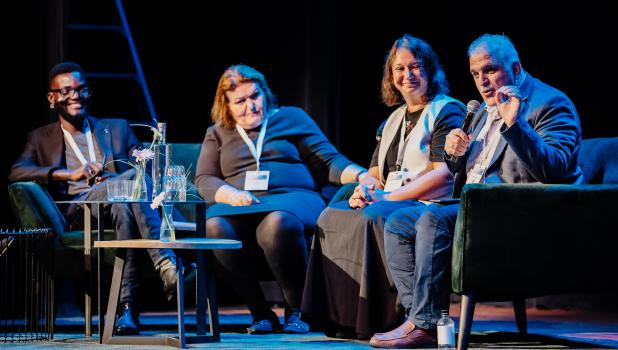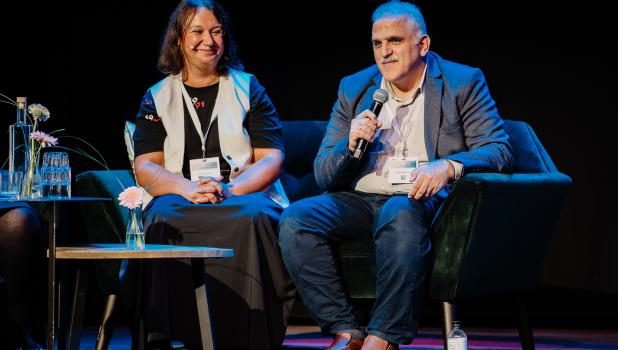
Finding hope amidst despair
Interview with Mohammad Abo-Hilal
Amid Syria's turmoil, Mohammad Abo-Hilal dedicated his life to healing the wounds of war. As a psychiatrist and the driving force behind Syria Bright Future, he's not just treating patients; he's weaving hope into the social fabric of his nation.
During the upheaval of the Syrian uprising, Mohammad's path was paved with hardship and sacrifice. His commitment to his cause was sealed during his detainment and subsequent torture by the Syrian regime. “I suffered from depression for two months after I was released.” This experience not only shaped his resolve but also deepened his understanding of trauma's enduring impact. “Life was black, and I didn't care about anything. My friends, also psychiatrists, offered me online counselling. They helped me to overcome this experience. That was a turning point for me. I’m proud that I fought against Assad’s regime.”
‘We started a revolution. We were delusional when we started, but now we can win. This gives me hope.’
Suffering from continuous traumatisation
After his release, Mohammad fled to Jordan, where he and his colleagues began offering mental health and psychosocial support to Syrian refugees. Their efforts led to the creation of Syria Bright Future, an organisation committed to helping Syrians rebuild their lives. Their transition to Turkey marked a pivotal moment as they ventured into liberated areas, offering solace amidst the chaos of conflict.
“Syrian people have been exposed to different types of traumatic events. It is a continuous traumatisation from witnessing the horrors of siege and chemical attacks to enduring forced displacement. More recently, a severe earthquake occurred in Southern Turkey and North Syria. It was horrible, and we lost so many people. It took me months to reconcile and resume my life.”

Advocacy for culturally adapted psychosocial support
Through his work, Mohammad highlights the importance of psychosocial support, a new concept for many Syrians. Despite challenges like limited resources and short-term programs, Mohammad remains dedicated to his cause and emphasises the urgent need for cultural adaptation of mental health interventions.
'Consider cultural differences in dealing with trauma.'
Creating positive change
“You can't feed the horse when the battle starts.” Mohammad uses this expression to explain his vision. “We need to prepare our education system to not only be professionals like doctors or psychologists but also to be change agents. We understand people’s needs. It’s our duty to advocate for the wellbeing of people's lives.”
In Mohammad Abo-Hilal's story, we find not only the resilience of the human spirit but also the unwavering conviction that even amidst the darkest of nights, hope remains a guiding light, illuminating the path to a brighter tomorrow.
In 2023, ARQ organised an international conference commemorating 50 years of knowledge sharing on psychotrauma. Psychiatrist Mohammad Abo-Hilal was among four panellists invited by ARQ International to share his perspective on psychotrauma in conflict settings. Mohammad Abo-Hilal is the founder of the Syria Bright Future. A humanitarian organisation specialising in mental health and psychosocial support for children, women, elderly and other vulnerable groups in Northwest Syria.
